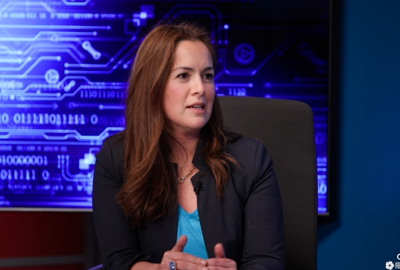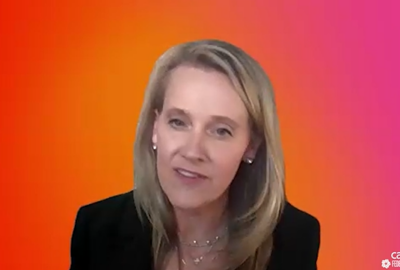Insight by Zoom
Transforming customer experience in government through empowered employees
To improve the experience of federal employees and their customers, Matt Mandrgoc, the head of U.S. Public Sector at Zoom says agencies need to gather feedback.
Federal agencies are rethinking how they deliver services to the public.
The Office of Management and Budget has designated 38 agencies and program offices as High-Impact Service Providers (HISPs).
Matt Mandrgoc, the head of U.S. Public Sector at Zoom, said optimizing the employee experience is key to improving their level of customer experience.
“When the employees are happy, they’re productive, they’re able to do their job. That can flow right over into the customer experience. We’ve seen with some of the HISPs, the biggest thing they have is that if those employees are working and they’re doing well, that experience flows right over into the customer experience,” Mandrgoc said.
Agencies setting a higher standard for customer experience focus are optimizing the time they spend with their customers — and making sure employees are addressing customer needs effectively.
“You want to have the opportunity to get the most out of the time that you’re spending with someone,” Mandrgoc said. “You have someone’s attention for a short period of time — how did you get that information? How did you disseminate the information, and did the customer receive it in the easiest and most simplistic way that they can?”
Improving the employee experience often comes down to giving the workforce the tools they need to do their jobs most effectively.
“When you look at employee experience, it’s about productivity, it’s about having the right tools in place that allow them to get their job done,” Mandrgoc said.
Refreshing CX tools
Agencies are refreshing the tools and technology behind their customer experience, but Mandrgoc said they should also think about the resources employees need to deliver those public-facing services.
“An agency will say, ‘We need to use this solution for our customers because it provides the best experience. But you have to use this other solution internally for internal use only.’ And it sends a message to employees that for the customer experience, we’re going to use these technologies or these solutions to give the greatest optimized customer experience, but not allowing that to happen on the employee side.
Both federal employees and customers have higher expectations for the types of technologies agencies are using, and are less likely to engage with agencies if they aren’t making IT modernization part of their CX portfolios.
“The biggest challenge that agencies are running into right now are legacy systems and forced technologies that don’t allow that growth to happen, and be able to get it to the next level. And this is where it’s incumbent on industry to really share those best practices,” Mandrgoc said.
Federal employees, he added, are more likely to feel engaged in their work if they have the tools to effectively do their jobs and provide services to the public.
“If you don’t have the tools out there from the employee side, it doesn’t allow them to do the job and be productive. So they’re going to be more likely to look outside,” Mandrgoc said.
Gathering feedback through focus groups
To improve both the customer experience and the employee experience, Mandrgoc said agencies should think beyond survey data, and gather feedback directly from individuals in focus groups.
“While people are serving and doing things, you have to poll a segment of people who are doing the job out there, and the customers and their experience and asking them specifically, what did you like? What did you not like?” Mandrgoc said. “We all look at metrics as a way to do things. But metrics can also be changed. You can set a high bar, or you can set a low bar. It’s understanding what the feedback is from those experiences. What are they? What are they measuring, how are they measuring it.”
Mandrgoc said meaningful improvements in the customer and employee experience require agency leaders to keep making sustained investments in what’s working.
“Impactful changes sometimes can take time. You have to realize that you sometimes can be fighting against internal challenges or battles on what culturally is going on in that space. You could also be fighting around legacy or forced technology that is being pushed on groups to do things in a certain way,” he said.
Creating better experiences in a hybrid world
Agencies scrambled to develop a largely remote work culture at the start of the COVID-19 pandemic.
But agencies are still figuring out how to effectively hold virtual meetings — with some employees in the office, working at home, or hundreds of miles away in another office.
“Too many times you go into meetings, in a virtual or hybrid environment, and people don’t have cameras on. So you can’t see their reactions, you can’t get the human connection with those individuals who know what’s going on,”
Hybrid meetings between employees in the office and others working from home can also create challenges.
Mandrgoc said agencies can do more to provide employees with an engaging experience, regardless of how they join meetings.
“You’re in a conference room, and it looks like you’re way far way at the end of the table. How do you arrange these rooms a little differently, to create a more immersive experience?” he said.
Mandrgoc said an agency client, using Zoom solutions, recently hosted a virtual job fair that put recruiters directly in touch with top candidates.
“Instead of just taking somebody’s name and a number and calling them back, they will take them directly from the virtual hybrid environment that they were in, and into a breakout room, to provide more details about this recruitment,” he said.
By taking on this engaging approach to hiring and outreach, the agency was able to identify more than 30 strong candidates.
Mandrgoc added that a HISP agency is also using Zoom solutions to reach out to customers who live in regions without high-speed internet.
“They were showing farmers all of the different things they’re doing for funding that they need to go forward in their business. A lot of them work and live in low-bandwidth environments, you go across there, it allows them to engage in that space,” he said.
Discover more about how to elevate your customer experience in the “Excellent, equitable and secure customer experience: A closer look at high-impact service providers” series.
Copyright © 2024 Federal News Network. All rights reserved. This website is not intended for users located within the European Economic Area.
Jory Heckman is a reporter at Federal News Network covering U.S. Postal Service, IRS, big data and technology issues.
Follow @jheckmanWFED






